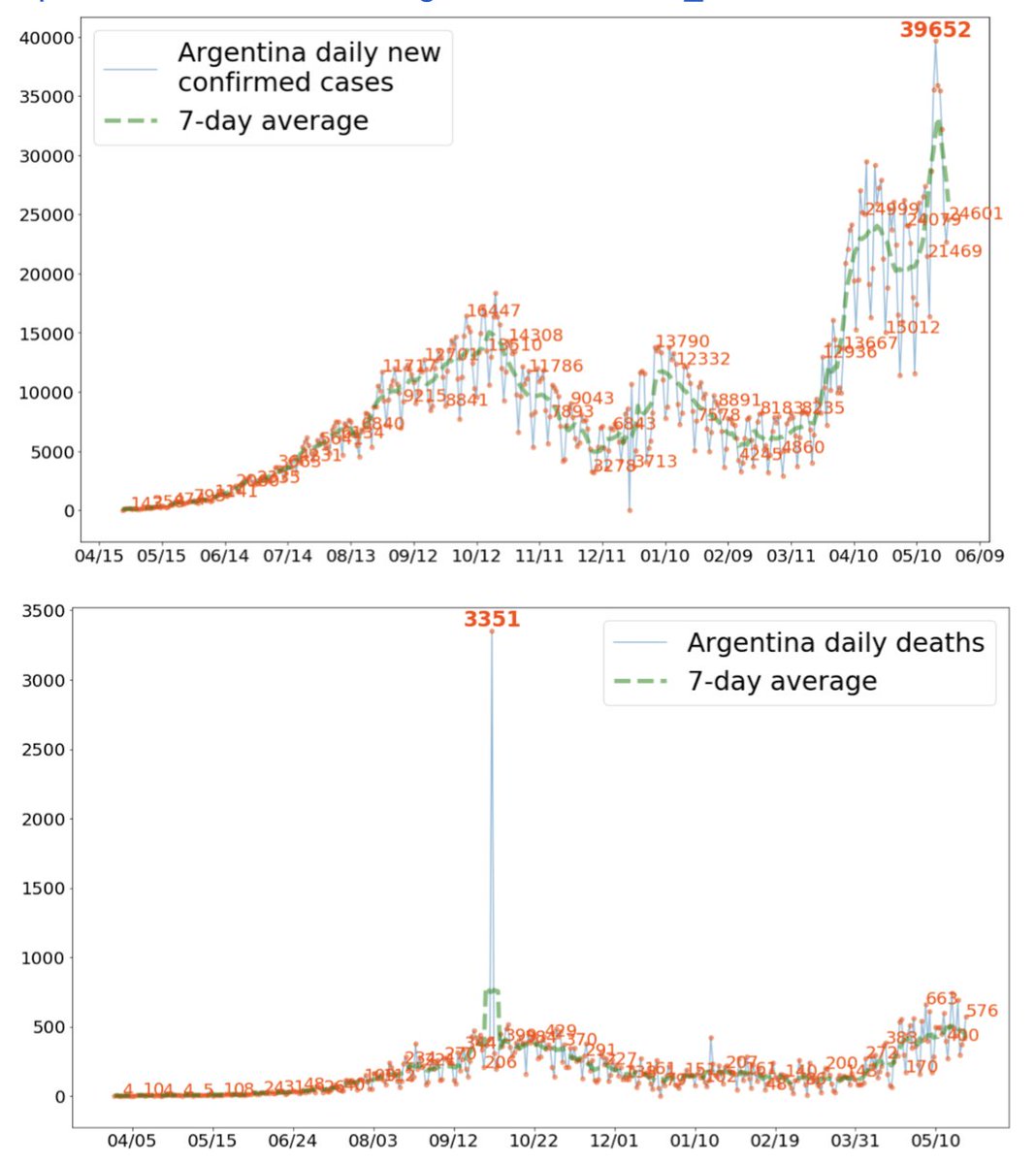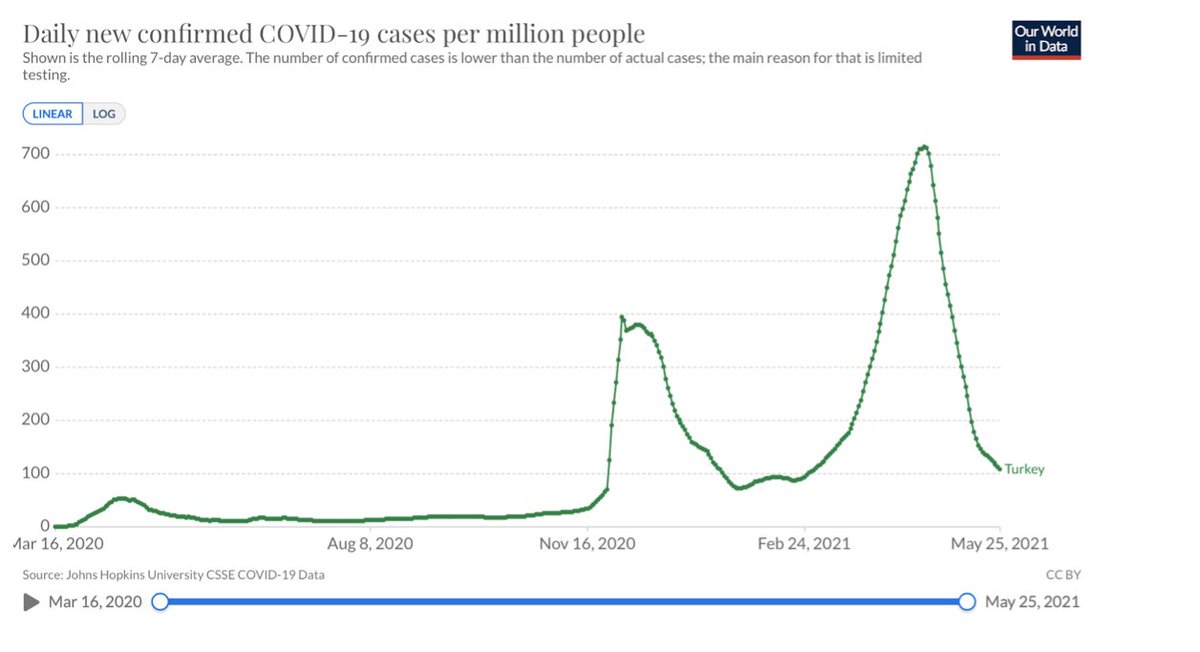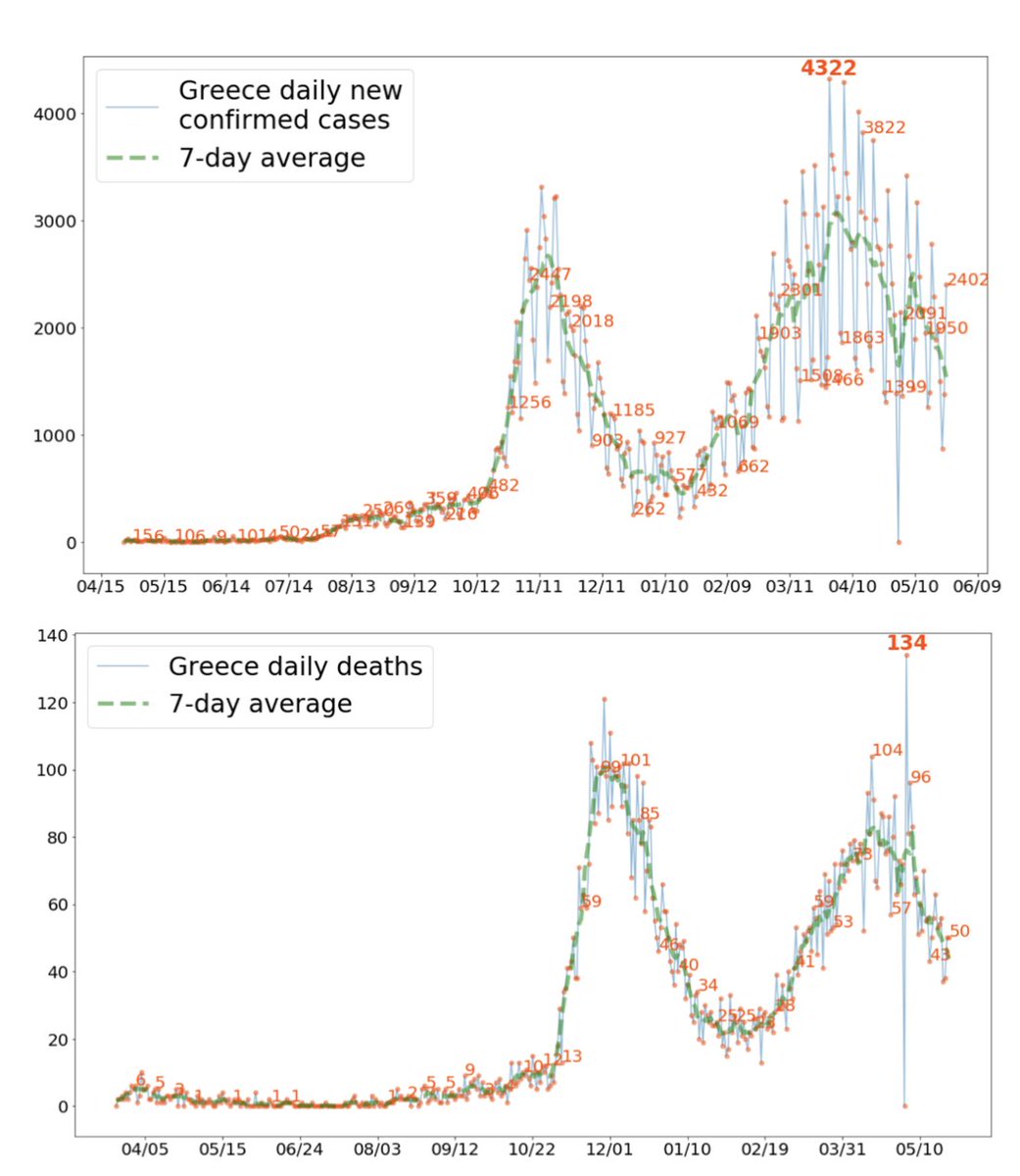
Australia has been enjoying pre-pandemic life for many months except for few day "snap lockdowns."
Victoria, the 2nd most populous state, is now locking down for a week over ‘highly infectious’ variant outbreak (37 total cases)
1/
globalnews.ca/news/7897419/a…
Victoria, the 2nd most populous state, is now locking down for a week over ‘highly infectious’ variant outbreak (37 total cases)
1/
globalnews.ca/news/7897419/a…
The B1.617.1 variant first found in India, which is now in Victoria, is thought not to be as rapidly transmitting as the B1.617.2 variant that is now dominating in UK.
However, evidence from Australia suggests B1.617.1 is also a much greater challenge to control.
2/
However, evidence from Australia suggests B1.617.1 is also a much greater challenge to control.
2/
There are two ways the variant seems different.
The first is a shorter time between being infected and infecting someone else.
"Our contact tracers are identifying and locking down first ring, second ring and third ring contacts within 24 hours.
premier.vic.gov.au/statement-acti…
3/
The first is a shorter time between being infected and infecting someone else.
"Our contact tracers are identifying and locking down first ring, second ring and third ring contacts within 24 hours.
premier.vic.gov.au/statement-acti…
3/
"That’s faster than ever. And yet this variant is still moving faster.
"The time between catching the virus and passing it on is tighter than ever.
4/
"The time between catching the virus and passing it on is tighter than ever.
4/
"The ‘serial interval’ – how long it takes between the onset of symptoms in the first and secondary case – is in many cases just over a day.
"And in just 24 hours, the number of cases has doubled.
Note: This is really fast and very disturbing.
5/
"And in just 24 hours, the number of cases has doubled.
Note: This is really fast and very disturbing.
5/
"We’ve seen other countries come up against these variants and lose. Badly. Places like Taiwan that have gone from no or very low cases to skyrocketing numbers in the space of just days and weeks – and now are struggling to get it under control.
6/
6/
There is a second way this variant may be different, though it is far to early to tell. The initial case started from a traveler infected by the strain first found in India.
The problem is that they tested positive at least 20 days after entering quarantine.
7/
The problem is that they tested positive at least 20 days after entering quarantine.
7/
There has always been a long tail of infectious periods that leads to a small number of cases arising after quarantines. It is possible that new variants may significantly extend that period leading to a need to change quarantine policy and making it much harder to control.
8/
8/
Here is the text:
"Officials have traced the latest cluster, the first in the state in more than three months, back to an overseas traveler infected with a variant first found in India, although the virus transmission path is still unclear.
9/
"Officials have traced the latest cluster, the first in the state in more than three months, back to an overseas traveler infected with a variant first found in India, although the virus transmission path is still unclear.
9/
"The unnamed Victoria man tested negative after finishing his quarantine in neighboring South Australia and flew to Melbourne this month but tested positive six days after he arrived.
globalnews.ca/news/7897419/a…
10/
globalnews.ca/news/7897419/a…
10/
All countries should take note of the successful Australian / New Zealand strategy of few day "snap" lockdowns that are shorter than an incubation period but enable contact tracing to map transmission chains and gain control.
Fast and strong action wins.
11/
Fast and strong action wins.
11/
I stand corrected about the long incubation period, here is a news item that confirms he was infected while in the quarantine facility.
Thanks to @EyeWtaf
12/
7news.com.au/lifestyle/heal…
Thanks to @EyeWtaf
12/
7news.com.au/lifestyle/heal…
I don't know if this is being done or not. I would recommend putting ~$100 HEPA air purifiers in each room and along the hallways.
• • •
Missing some Tweet in this thread? You can try to
force a refresh









